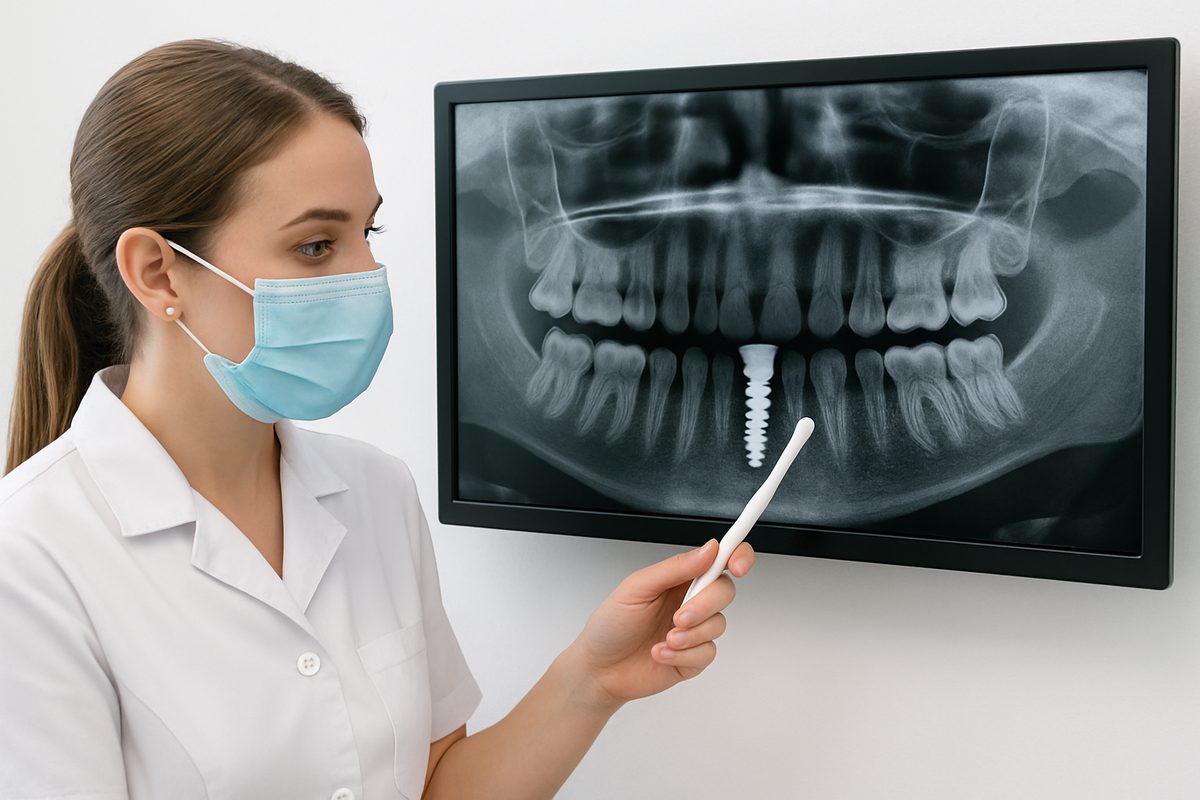Blog - Fort Wayne, IN
Tips, Facts, And The
Latest In Dentistry

Implant And Perio: Understanding The Connection For Better Dental Health

Understanding the link between implant and perio is key to long-term dental health. “Implant and perio” refers to how dental implants and periodontal (gum) disease affect each other. Healthy gums support teeth and implants; active gum disease can harm implants and raise the chance of problems like peri-implantitis. Knowing the connection helps patients protect their new implants and natural teeth.
What Is Periodontal Disease?
Periodontal disease starts as gingivitis — swollen, bleeding gums from plaque. If untreated, it can progress to periodontitis, where chronic inflammation destroys the bone and soft tissues that hold teeth in place. Loss of support can make teeth loose and increase the risk for infections that affect nearby implants.
Why Periodontal Health Matters For Dental Implants
Active gum disease raises the risk of implant failure by impairing healing and increasing infection risk. Patients with a history of periodontitis are more likely to develop problems around implants. For many people considering implant and perio care in Fort Wayne, Indiana, controlling gum disease first improves long-term success.
Peri-implant mucositis vs peri-implantitis
Peri-implant mucositis is an early, reversible inflammation of the soft tissues around an implant — redness, swelling, and bleeding. Peri-implantitis is more destructive: it includes bone loss around the implant, deeper pockets, and possible implant mobility. Early signs such as bleeding or persistent bad taste should prompt evaluation.
Common Risk Factors Linking Implant And Perio Problems
Shared risk factors include smoking, uncontrolled diabetes, poor oral hygiene, a prior history of periodontitis, and certain medications that affect healing. These factors raise the chance of both gum disease and implant complications, so addressing them ahead of implant placement is essential.
Pre-Implant Evaluation: Treating Perio First
Before placing implants, clinicians screen for active periodontal disease and stabilize it. Treating perio first lowers infection risk and improves bone and tissue health around an implant. For those researching implant and perio options in Fort Wayne, Indiana, a thorough pre-implant periodontal plan is a standard step.
Typical diagnostic steps
A pre-implant workup usually includes a clinical exam, periodontal charting to measure pocket depths, radiographs or CBCT scans to evaluate bone volume, and an overall review of medical history and risk factors.
Treatment options before implants
Common treatments include non-surgical therapy like scaling and root planing, surgical periodontal procedures to reduce pockets, and bone grafting when bone is insufficient. Stabilizing the gums and bone before implant placement improves predictability.
How To Maintain Implants And Prevent Peri-Implant Disease
Good home care prevents problems: brush twice daily, clean between teeth and implants with interdental brushes or floss, and consider a water flosser for hard-to-reach areas. Watch for signs like bleeding, swelling, or mobility and report them promptly. Many patients find focused daily care prevents recurrence of disease.
Professional maintenance plan
Regular professional cleanings and periodontal maintenance are vital. Frequency depends on risk — often every 3–6 months — and should include monitoring pocket depths and periodic radiographs to detect bone changes early.
Treatment Options If Peri-Implantitis Develops
Treatment ranges from non-surgical debridement and local or systemic antimicrobials to surgical access and regenerative techniques to rebuild bone. In advanced cases with severe bone loss or loose implants, removal may be necessary before planning future reconstruction.
How Sycamore Hills Dentistry Approaches Implant And Perio Care
Sycamore Hills Dentistry uses a team-based approach that treats periodontal disease before and after implant placement to protect outcomes. The team coordinates care so implants are placed only when gum health is stable, lowering the risk of peri-implant disease.
Advanced technology that helps
The practice offers Yomi robotic guidance for precise implant placement and an on-site dental lab for faster, accurate restorations. These tools support careful planning and help create predictable results in implant and perio cases near Fort Wayne, Indiana.
When To Seek Care & Next Steps
Book an evaluation if you have bleeding gums, persistent bad breath, loose teeth, or concerns after implant placement. A coordinated plan that screens for perio, treats disease first, and follows a strict maintenance schedule lowers risks and improves long-term outcomes for implant and perio patients in Fort Wayne, Indiana. Financing and insurance options can help make care accessible.




